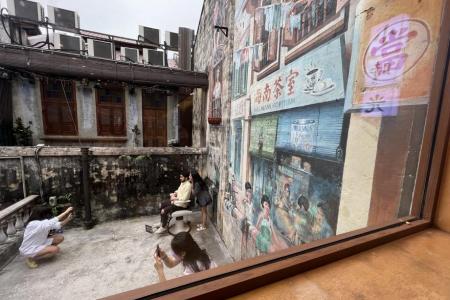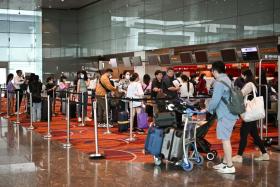Top things to do in Chinatown, Kuala Lumpur’s best-kept foodie secret
KUALA LUMPUR – Duck into a bar hidden behind a hole-in-the-wall shopfront. Tuck into punchy assam laksa from a famous hawker stall in an alley. Sip cocktails made with South-east Asian ingredients and dine on local fare in a botanical-themed restaurant.
Do all this and more in Kuala Lumpur’s Chinatown, a buzzy, gentrified area similar to Keong Saik in Singapore.
Murals, like the iconic ones of Penang and Ipoh, adorn KL’s Chinatown. A back alley known as Kwai Chai Hong, sandwiched between rows of bars and eateries, depicts former trades – a coffee shop, a barber’s chair, an erhu player. Strategically placed benches, stools and a barber’s chair make for good photo spots.
Kwai Chai refers to “ghost children”, a colloquialism and a nod to the area’s illicit activities of the past. All manner of vice flourished, from gambling to drugs to the world’s oldest profession.
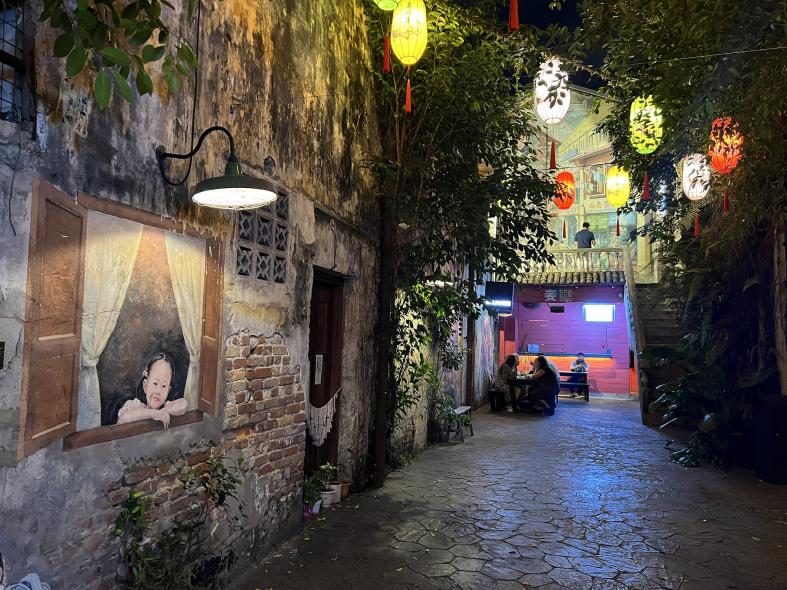
These days, establishments here pay homage to Chinatown’s storied past. Crane KL (cranekl.com) features an opium bed as part of the bar’s chinoiserie-chic decor, while speakeasy-style bar PS150 (www.ps150.my) is hidden behind a vintage toy store shopfront that leads into a cosy, lantern-lit main bar.
From food to cocktail bars, all located within a 10-minute walk, here are my top picks for a food trail through Chinatown.
Traditional brekkie
Start your day at Bunn Choon (facebook.com/bunnchoon1893), a fourth-generation dim sum restaurant with a unique take on the classics.
Egg tarts (RM2.50 or about 80 Singapore cents each), for instance, are encased in flaky, sesame-flavoured pastry while beancurd rolls are oozy with cheese (RM6.50) and remain hot even when I get them to go. Arrive before 8am, especially on weekends, or be prepared to queue.
Leave room for a second breakfast of assam laksa at Assam Laksa Petaling Street (str.sg/wHht). The hawker stall has no signboard, but Google Maps pictures will tell you you are at the right place. Look for the bright red tarpaulin awning.
Go for the assam laksa, the first item on a compact menu. Small bowls cost RM8 and come with generous chunks of mackerel, heartier than many other versions I have tried.
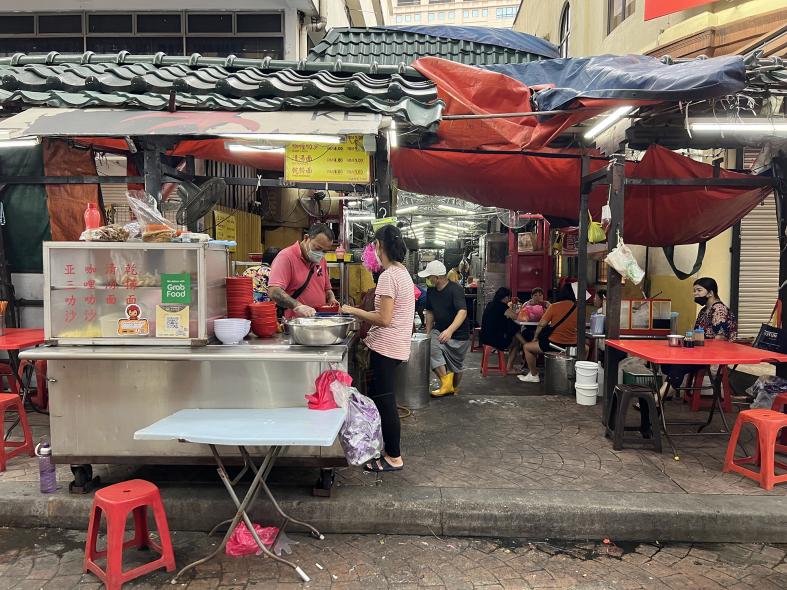
Explore cinema-turned-lifestyle space
Check out REXKL (rexkl.com), a performance and events centre that comprises bars, cafes and shops. The building was once occupied by Rex Cinema, one of Malaysia’s first theatres when it was founded in 1947.
If walls could talk, these weather-beaten bricks would have dozens of tales. Of two fires, first in 1972 and another in 2007. Of a cinema and community space which could seat around 1,100 moviegoers in its heyday. Of the rundown years when it was converted into the budget Hotel Red Dragon, then left in disrepair, becoming home to drug users and squatters.
Reopened in 2019, today’s building is a palimpsest, signs from its past still apparent. The structure of the cinema hall remains, some bricks still soot-blackened. But murals, neon-lettered bar signs and filament bulbs lend pops of colour.

“Back in the day, you walked up for a RM4.50 movie. Today, you can enjoy books at the same price,” reads a sign leading to BookXcess store. It opened in November 2021 and is right up there with the world’s most aesthetically pleasing bookstores, even if bibliophiles might balk at the Gen-Z TikTok crowd.
Food stalls, in the basement, are hip in both appearance and food. Stellar’s Cake Room is a pastry shop located in a walk-in refrigerator. Hijau serves Malay-Indonesian plant-based fusion cuisine – think grilled cheese rendang sandwiches made with mushrooms instead of meat (RM30).
And at The Rex Bar, go for the Tuak Highball (RM18) made with local rice wine and fruit. Refreshing, fizzy and sweet, it is ideal for day drinking.
Funky Malaysian flavours
Grab lunch nearby at Palmierra 28 Cafe (@palmierra28 on Instagram). Malay food is commonplace in Singapore, but the flavours here are nothing like the nasi lemak and mee soto I am used to.
Instead, Laksa Pekan Pahang (RM29), which a server recommends, has a fish base similar to assam laksa but the consistency of mee rebus gravy – slicked on fat, springy noodles called mee gobok. For garnish, an aromatic heap of torch ginger flower, cucumber and chilli.
Ayam masak gulai tempoyak (RM32) is another novel dish. Tempoyak, a condiment made from fermented durian, sounds funky. But durian haters need not fret, for the gravy is far less pungent than the fruit. In fact, it tastes more like durian candy, without the bitterness associated with premium durian. Order rice to soak it all up.
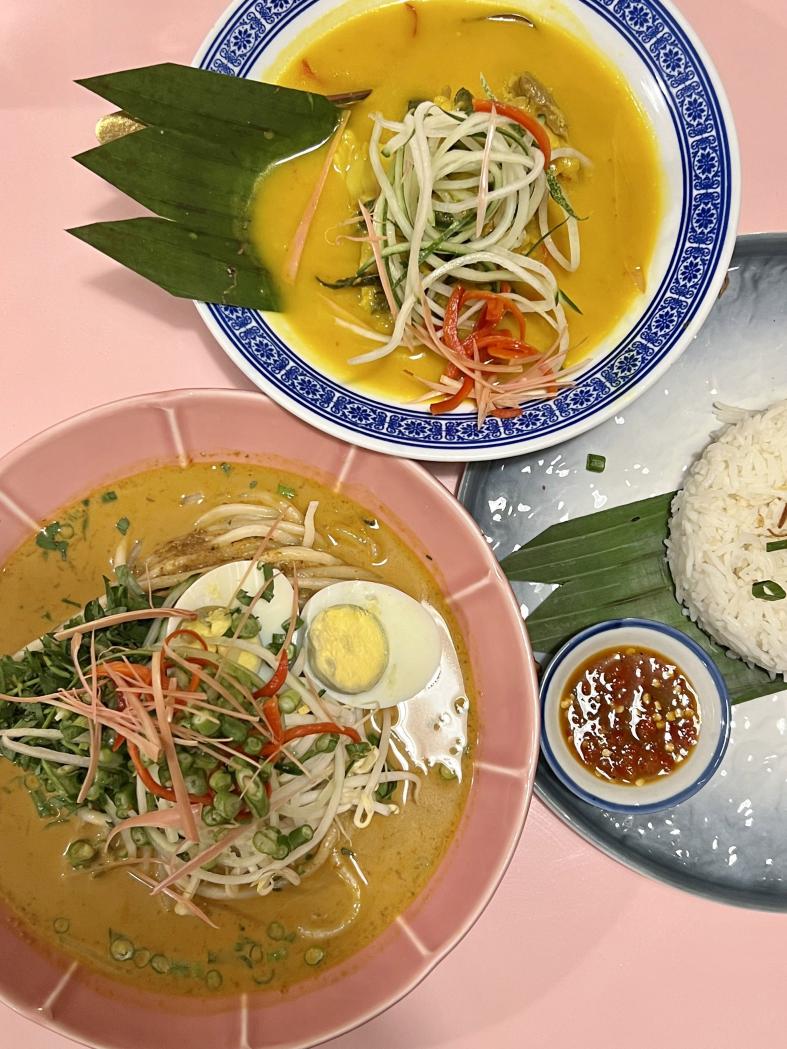
Happy hour at the hotel bar
Stay at Four Points by Sheraton Kuala Lumpur, Chinatown (str.sg/wHhv) so you can schlep back to your room for a mid-day nap. This also allows you to avoid pesky Grab surcharges at the end of the night.
Beds are comfortable, pillows are firm and common areas such as the lobby and gym are adorned with photographs and murals of the Chinatown district. Most importantly, at about RM307 for entry-level rooms with king-size or twin beds, it is very good value.
Get up in time for happy hour, which runs from 4 to 8pm at the hotel bar Jann (jannkl.com). A handful of cocktails is available for RM28 each (usual prices range from RM45 to RM50), including a boozy take on bandung.
The menu, like many bars along the same street, pays homage to traditional food and drinks in the area such as edible cocktail tau foo fah (RM45), or soya bean pudding.
Eat and drink the night away
The best seats at Taiwanese joint DayOne DayOne Concept (dayonedayone.com) overlook Kwai Chai Hong, where you can watch the endless selfie action going on below. Food at this chain establishment is no slouch – the noodles are springy and the fried chicken chop in my set meal (RM26.90) remains crispy and juicy to the last bite.
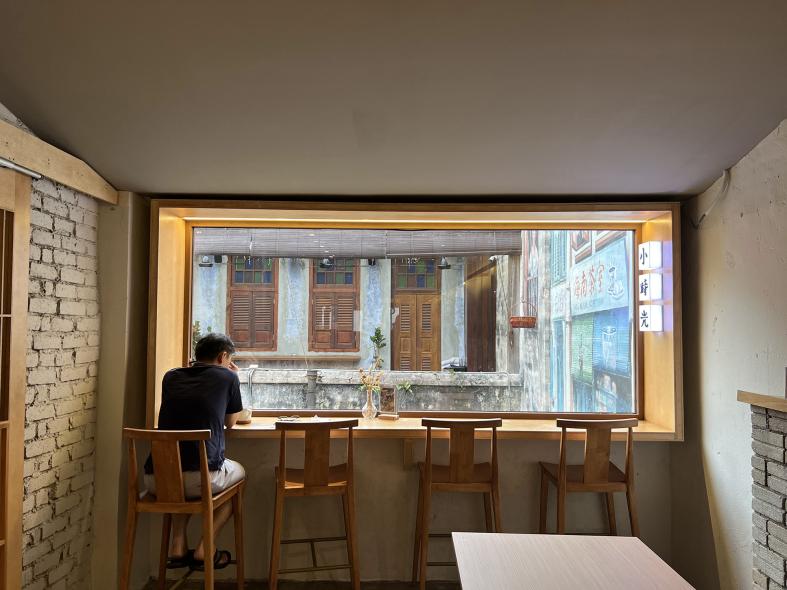
Need more nosh? Grab some upsized buns at Da Bao (@dabaomy on Instagram). Pork buns (RM20) are hearty if a touch greasy, while mala aioli, ginger and cucumbers make the tempura fish bao (RM21) quite refreshing. One bao a person is plenty. If you are a meat lover, the char siu croquettes (RM20) are good too.
You can also order from the Da Bao menu at Kapitan Haus, which opened in April and is located on the second floor. Kapitan refers to leaders of the Chinese community, a nod to the miners and traders who brought life to the neighbourhood in the past.
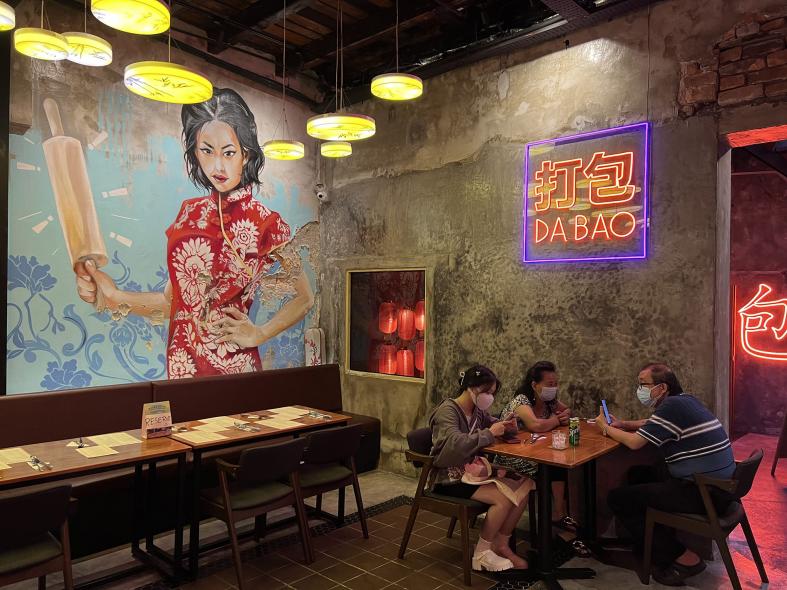
Kopi Kaw (RM40), a riff on the negroni, balances the classic cocktail’s bitterness with brown butter washed gin and coffee-infused sweet vermouth. And burbur cha cha (RM42) packs the sweet potato and coconut flavours of the dessert into a clear lavender cocktail.
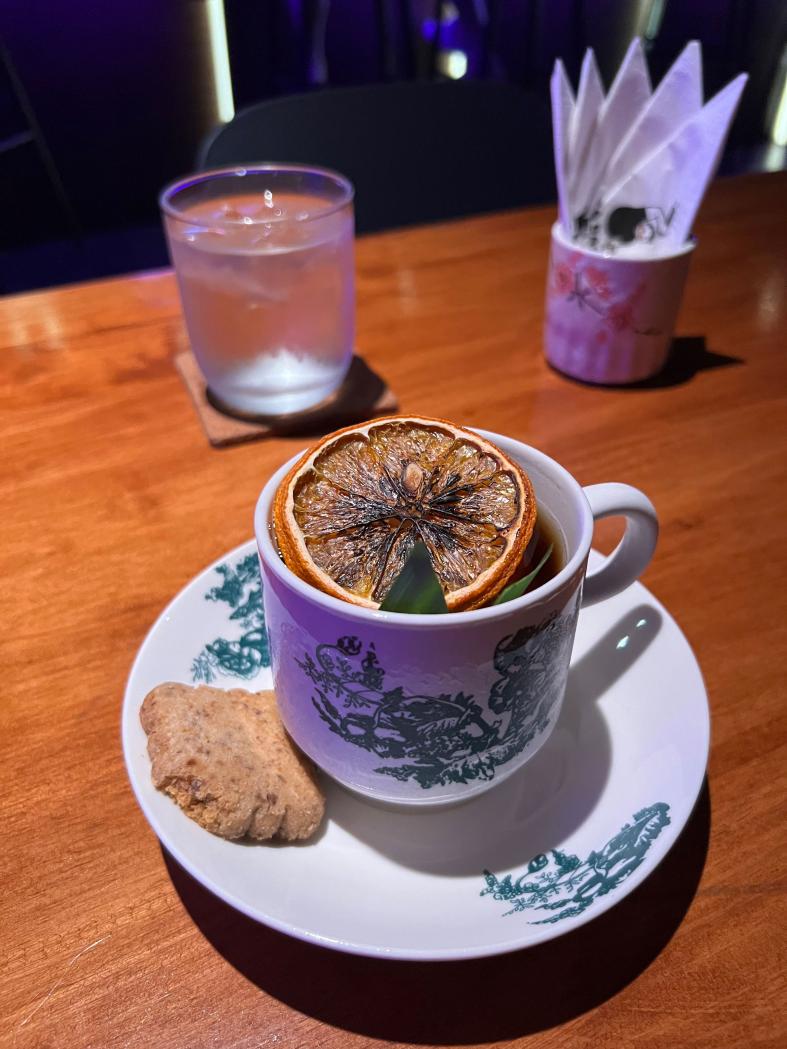
Fans of the jungalow interior design trend will enjoy leafy Botakliquor Bar (facebook.com/BotakLiquor), located atop Asian fusion restaurant Chocha Foodstore. Local ingredients feature heavily on the menu, including jackfruit, mangosteen and luo han guo.
I order a Tembikai (RM46) without knowing what to expect, but as a fan of savoury cocktails, I am intrigued by the pairing of sesame, milk-washed rum, watermelon and soya sauce. It turns out refreshing and light, with a delicious vegetal aroma, the kind of drink that makes me want to order another.
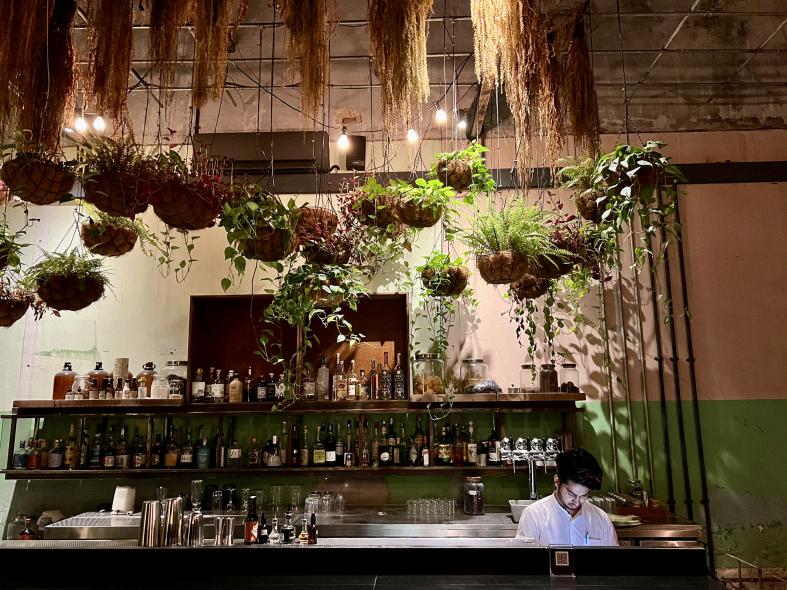
Good thing my hotel is a mere 20m away – all I have to do is wind my way down the spiral staircase at the end of the night.
Three cool neighbourhoods for food and drink
The Malaysian capital is sometimes overlooked in favour of destinations further afield, such as Bangkok and Bali.
But at less than an hour’s flight away, it is the perfect destination to jet off to on a Friday after work and arrive in time for supper. The favourable exchange rate does not hurt too.
You do not need a Covid-19 test to enter the country, and though visitors are supposed to enter their vaccination information into the MySejahtera App, no one checked mine throughout the duration of my stay in July.
Here are some other neighbourhoods that foodies will enjoy.
Bukit Bintang
Make reservations at Bol (linktr.ee/bol_in_kl), a modern Malaysian restaurant with Peranakan influence. Start with the rojak tart (RM25 for three), which captures the flavour bomb of rojak in two crunchy bites.
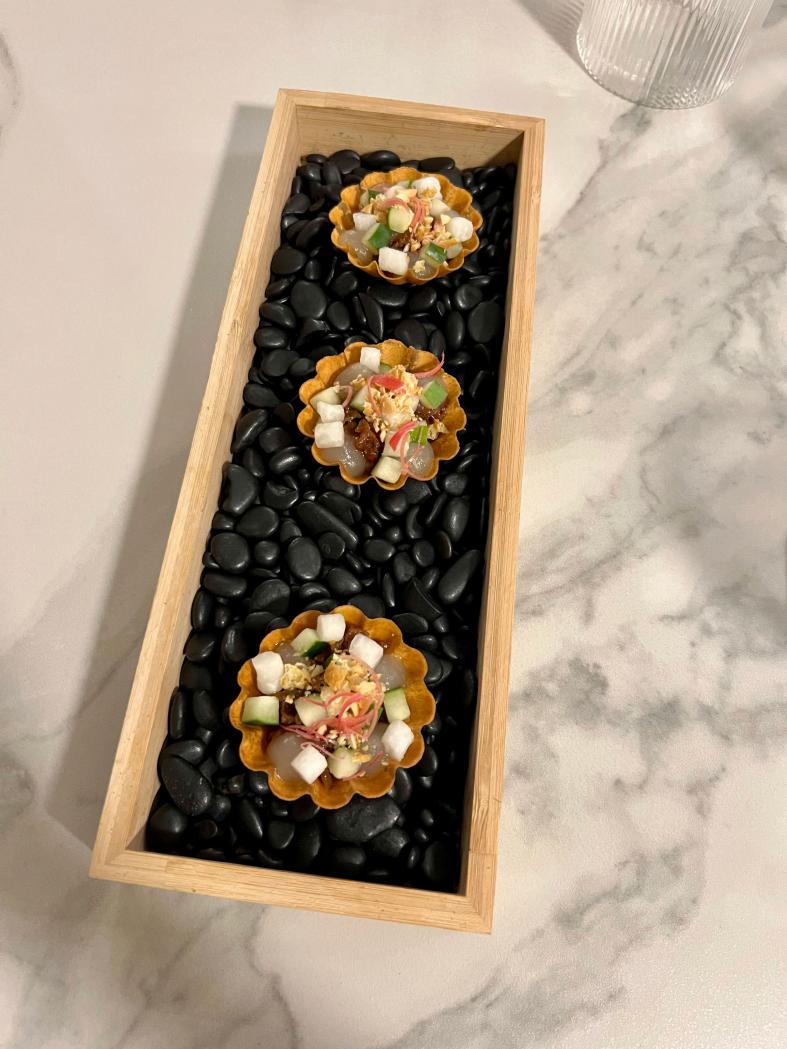
The wing bean salad (RM35) is fresh and citrusy, while the cod kesum (RM108) is like a refined version of sang har mee, or crispy fried noodles, perched on a delicious laksa broth.
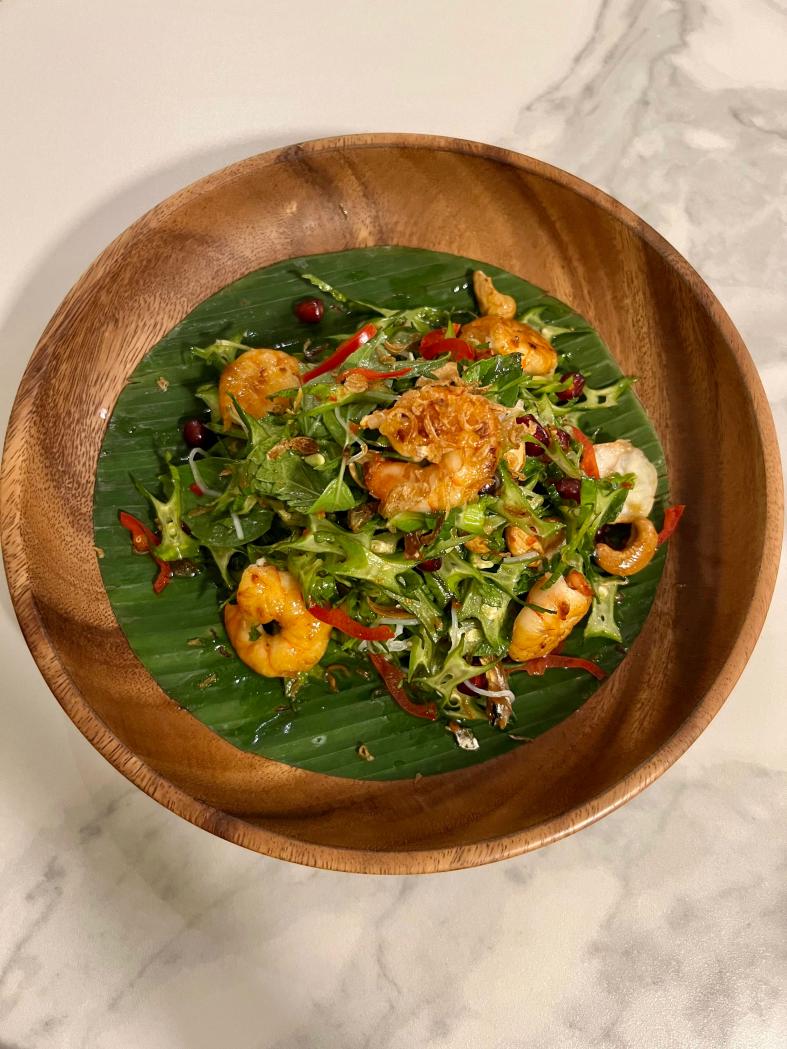
Nearby Pahit (linktr.ee/Pahit), which means bitter in Malay, puts the spotlight on gin and I home in on the Coconut Clover Club (RM45), which includes raspberry, coconut puree and lemon. It does not, as I fear, reek of the fake coconut taste in Malibu rum.
“We use only santan (fresh coconut),” says the bartender as he shakes up my drink. It tastes exactly so. And I still dream about the roasted peanut negroni (RM44), with its buttery, savoury notes from the peanut infusion.
Bangsar
APW (apw.my), short for A Place Where, is a cluster of eateries housed in an open-air compound. You can get ice cream at Hokie Pokie, brunch at Breakfast Thieves, coffee at Pulp and more.
Olivia Deli, which does mostly tapas-style Mediterranean dishes, started as a stall at food market Tiffin at the Yard before taking over its current premises this April. It has already garnered a strong following, with more than half the tables filled on the Friday afternoon I visited.

Of the two dishes I order, the grilled octopus (RM68) fares better. Topped with piquillo pepper puree and punchy salsa verde, it makes a good appetiser.
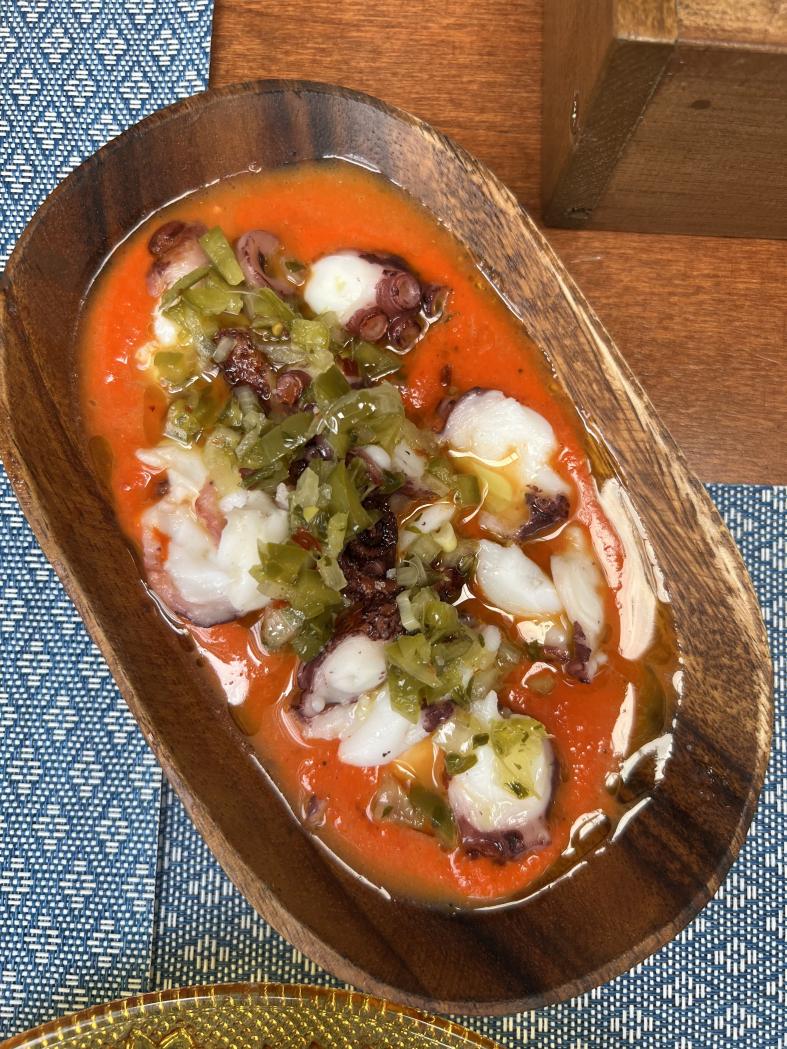
Damansara Heights
Make the trek here – a 20-minute cab ride from KLCC – for the clutch of eateries located in and around Plaza Damansara. Huckleberry (huckleberry.my) does good cafe fare, and you can get your caffeine fix with one of Happy Stan’s (happystan.my) coffee cocktails. My pick is the Cold Irish Coffee (RM49), its bitterness balanced out by a lush layer of double cream.
Also stop by Cotta (@cottakl on Instagram), where the compact menu specialises in sourdough and open-faced sandwiches slathered with ricotta cheese.
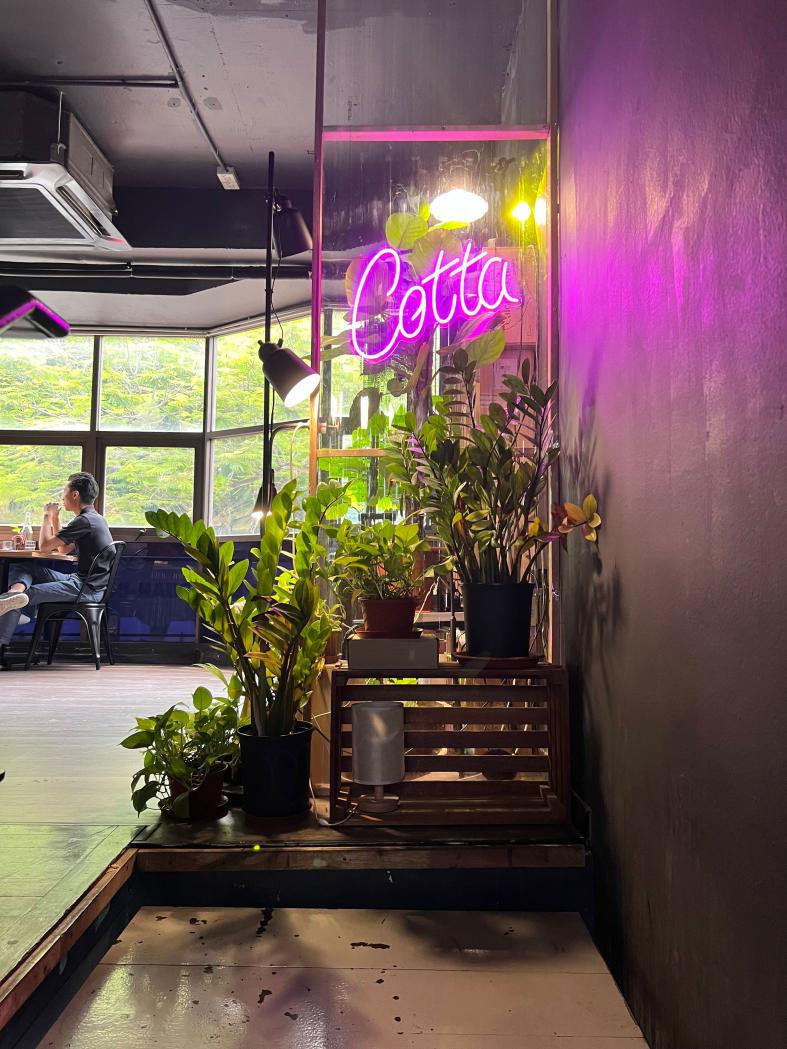
Owner Ivan Chong opened the cafe in 2021 after his previous business folded during the pandemic, and located it above a convenience store as the rent was cheap. The ricotta is his creation, made with milk from a Johor farm and lemons from the Malaysian state of Perlis.
Try it in The Classic (RM18) with honey and walnuts, or in the Chuck Mooris topped with slow-cooked beef, chimichurri sauce and a poached egg (RM25).
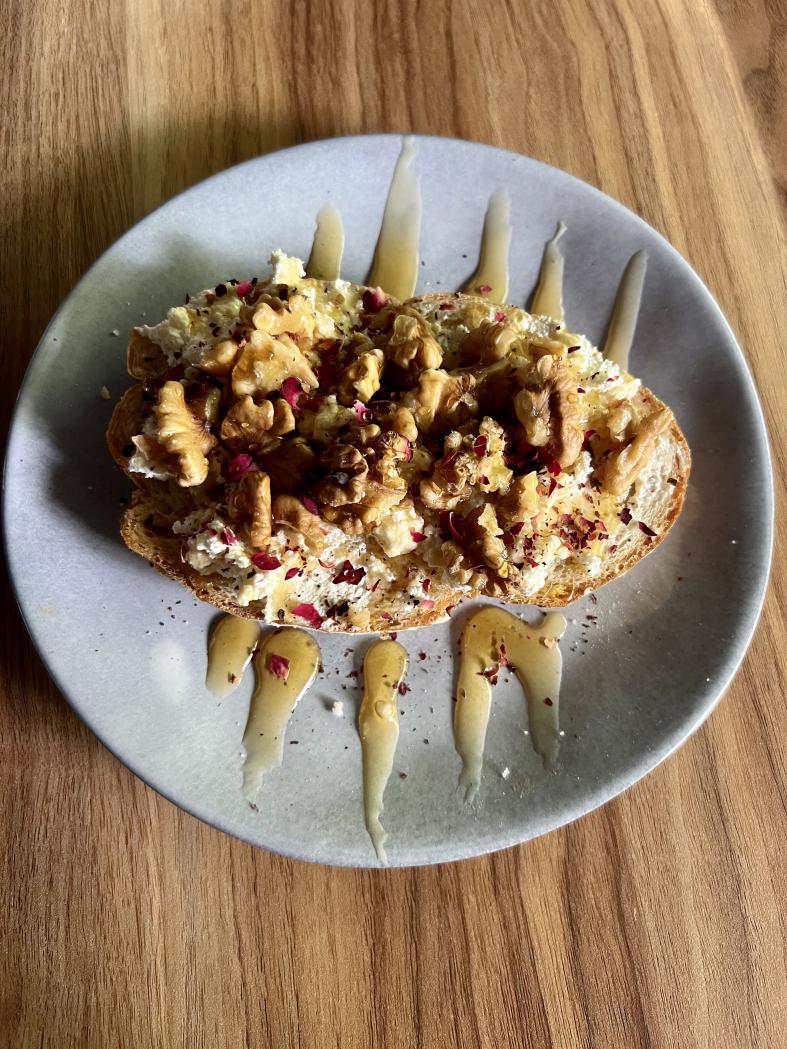
Top it all off with a cocktail at JungleBird (facebook.com/junglebirdkl), ranked 35th in this year’s line-up of Asia’s top 50 bars. The bar is named after the rum-based drink known as Malaysia’s national cocktail, though a Malaysian friend looks sceptical when I tell him this. Perhaps it is like the Singapore Sling, which no one from here actually orders.
More unique is the Nyonya Business (RM45), made with rum, rojak sauce, housemade almond and cashew syrup, and a cucumber syrup infused with chilli. Sounds strange? More like food than a drink? Let me assure you, it was the best cocktail of my trip.
Get The New Paper on your phone with the free TNP app. Download from the Apple App Store or Google Play Store now

